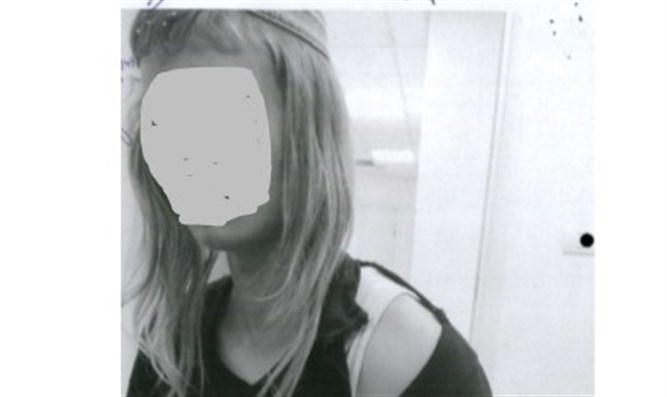The Israeli police department agreed to pay 2,800 shekels in compensation to a Jewish teenager who sued for being arrested in Jerusalem only as a result of his appearance, specifically his long peyot (side locks) and large knitted kippa.
The police officer admitted that he required the boy to identify himself because “he looked like a hilltop youth.”
At the outset of the hearing, the prosecution described the minor’s outward appearance as “Wearing a large woven kippa on his head and thick, long peyot hanging from the sides of his face to his chest.”
In the defense statement filed by the police, the arresting officer was asked why he asked the minor to identify himself after getting off the train.
The officer responded that “This is a guy who looks like a hilltop youth, and it was downtown at rush hour.”
On the date in question, the minor had traveled by light rail in Jerusalem. When he got off the train at the Jaffa street station, two police officers asked him to present his identification card.
The minor asked them why, and when they repeated their demand he again asked “Why? Because I have peyot and a big kippa?”
After the minor gave his name and address, the officer announced that he was being detained. When asked the charge, “the policeman jumped on the plaintiff angrily, handcuffed him behind his back and in so doing, tore the plaintiff’s shirt, telling him the cause of his arrest was his refusal to identify himself.”
While waiting for a police van to arrive, the minor stood at the crowded station with his hands cuffed behind his back and his shirt torn.
The officer also tightened the minor’s handcuffs in violation of the law and refused to loosen them even slightly when asked by the plaintiff to do so.
Upon the minor’s arrival at Jerusalem’s Russian Compound police station, his legs were also shackled and he had to wait roughly two hours with his hands and feet cuffed.
In accordance with Israel’s Youth Law provisions the minor’s parents were summoned to the station and his mother was present for the interrogation.
The minor denied that he had disrespected a police officer and pointed out to the officer that it’s not legal to interrogate him while handcuffed.
The officer responded by asking, “Who knows the law, you or me?”
The minor claimed in the lawsuit that “Because of his appearance, he and boys like him face countless police inspections, even in circumstances that involve no suspicion of them. These checks are illegal.”
The lawsuit was filed for several charges, including handcuffing during interrogation, handcuffing while at the station, excessive and uncalled-for hand and foot handcuffing as required by law, handcuffing a minor on a city street, false arrest, and constitutional wrongs in violation of the Basic Law of Human Dignity and Liberty.
Attorney Menashe Yado of Honeinu legal aid organization representing the minor stated that “the police targeted the boy only because he was a hilltop youth. They acted by virtue of stigma and profiling. The lawsuit made a minor correction, but it’s the responsibility of the police staff to learn consequent lessons and bring them to the street level.”
It’s no secret that the Israeli police and media establishment often target and vilify the hilltop youth. The romantic counterculture of teenage activists living organic Jewish lives off the grid and challenging Israel’s authority in the West Bank is often presented to the public as a prime example of society drifting too far from the values of the state’s Zionist founders.
When it comes to the broader culture conflict between forces of Western liberalism and Jewish nationalism in society, Israel’s fear-mongering elites rarely miss an opportunity to use the hilltop youth as a caricature to delegitimize the entire camp seeking to pull the state in a more deeply Jewish direction.
These teenagers represent a Jewish nationalism far deeper and more authentic to the Semitic region than Zionism was able to produce and they serve as one more example of Israel’s more traditional forces gaining power at the expense of the state’s westernized ruling class. No matter how much the press demonizes them or security forces try to intimidate them, the hilltop youth subculture is likely to continue growing.
It’s generally unwise for a state to cause an ideological group to feel like a persecuted minority. The abusive behavior of Israeli police toward the hilltop youth will likely only harden and further radicalize Judean teenagers. Not only the extreme cases of youth being subjected to imprisonment without charges and “aggressive interrogations” but also the thousands of other examples of young people seeing themselves as living under a system in which they have no democratic rights.





